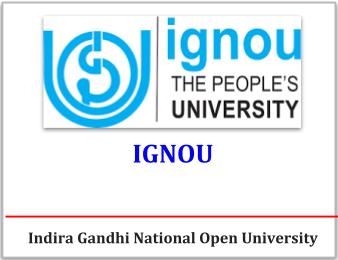(HOT) UPSC Current Affairs 2025 PDF
NEW! The Gist (JAN-2026) | E-BOOKS
IGNOU HISTORY NOTES : Modern India - MAHATMA GANDHI'S EMERGENCE IN INDIAN POLITICS AND HIS IDEOLOGY

IGNOU HISTORY Study Notes for IAS, UPSC Exams
Modern India 1857-1964
MAHATMA GANDHI'S EMERGENCE IN INDIAN POLITICS AND HIS IDEOLOGY
Structure
16.0 Objectives
16.1 Introduction
16.2 Gandhi's Struggle in South Africa
16.2.1 Condition of Ind~ans
16.2.2 Campaign - 1
16.2.3 Campaign - 2
16.3 Gandhi's arrival in India
16.4 Entry into Indian Politics
16.4.1 Champaran
16.4.2 Kheda
16.4.3 Ahmedabad
16.5 The Rowlatt Satyagrah
16.5.1 Rowlatt Act
16.5.2 Movement
16.5.3 Importance
16.6 The Gandhian Ideology
16.6.1 Satyagraha
16.6.2 Non-Violence
16.6.3 Religion
16.6.4 Hind Swaraj
16.6.5 Swadeshi
16.7 Let Us Sum Up
16.8 Key Words
16.9 Answers to Check Your Progress Exercises
16.0 OBJECTIVES
After reading this Unit you shall be able to:
- learn about the problems faced by immigrant Indians in South Africa,
- know about the efforts made by Mahatma Gandhi in South Africa to improve the condition of Indians residing there,
- understand the peasants movement in Champaran and Kheda and the work of Gandhi amongst the peasants,
- know the role of Gandhi in the Ahmedabad Workers strike and Rowlatt Satyagrah, and
- understand and explain the ideology of Mahatma Gandhi.
16.1 INTRODUCTION
Mahatma Gandhi played a key role in transforming the content, ideology and range of Indian politics during the National Movement. With his entry into politics there opened a new phase of struggle. With the shift to mass mobilisation he remained the dominant personality during the National Movement and played a crucial role in directing the struggle against British Imperialism. This Unit takes into account his struggle in South Africa and political activities in India till 1920. This is a period which could be described as the formative stage of Gandhi-a stage in which he tried to understand Indian economic, social and political reality. It was during this period that he applied new forms of struggle. We also discuss in this Unit his ideology and how he applied that in political actions.
16.2 GANDHI'S STRUGGLE IN SOUTH AFRICA
Mohandas Karamchand Gandhi who came to be popularly known as the Mahatma, was born in a well to do Hindu traditional family of Porbandar in Kathiawar Gujarat on October 2, 1869. Gandhi went to England for his studies in 1881, offered the London Matriculation, and qualified for the Bar. This young barrister returned to India in 1891 and began practising in the Bombay High Court. Not being a success as a lawyer, he shifted to Rajkot where petition-writing brought him a monthly income of about Rs. 300. In 1893, Gandhi sailed to Durban in connection wirh a legal case of Dada Abdulla and Co., an Indian firm, doing trade in Sourh Africa. Gandhi had contracted to work there for a year only but he stayed there upto 1914 with two breaks in between. During his stay in South Africa Gandhi fought against racial discrimination which denied to the Indian community human rights necessary for leading a civilized life.
16.2.1 Condition of Indians
About 2 laks Indians lived in South Africa at a time when Gandhi had to fight for their cause. Most of the Indian Population there comprised indentured, freed labourers, and a few merchants with their clerks and assistants. The indentured labourers were treated as semi-slaves by the white planters. The rest suffered from various racial disabilities with regard to rights of citizenship, trade, and ownership of property.
- They were also subjected to all kinds of indignities in their daily life:
- Every Indian, without any distinction, was contemptuously a 'coolie' which meant a labourer.
- The Indians were not allowed to walk on footpaths or to be out at night without a permit.
- They were prohibited to travel in first and second class railway compartments, and were forced at times to travel on the footboard of trains.
- They were not permitted to enter hotels exclusively reserved for Europeans.
- In Transvaal, Indians were asked to do trade or reside in specific areas which had highly unhygienic surroundings and had no proper arrangements for light, water supply and drainage.
- Moreover, the ex-indentured labourers had to pay f 3 as poll tax.
Click here to download full Chapter
Courtesy: eGyanKosh


